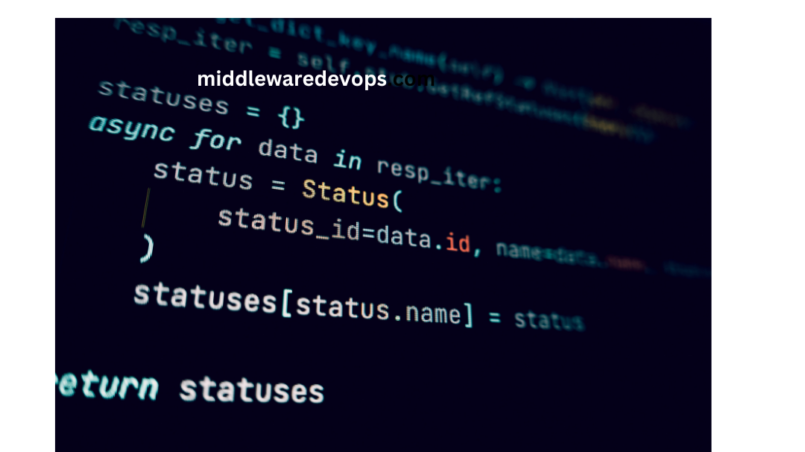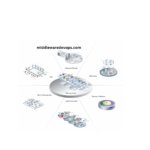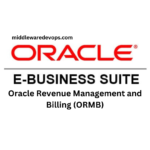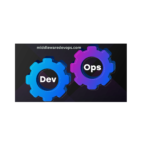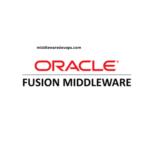In this Blog, we will learn about the Role of Middleware in DevOps in depth. Below are the topics we will cover one by one in order to understand the core value of Middleware and DevOps.
Introduction to DevOps
DevOps is a software development methodology that emphasizes collaboration, communication, and automation between software development teams and IT operations teams. The goal of DevOps is to deliver high-quality software more quickly and efficiently by breaking down traditional silos between development and operations and using automation to streamline the software development lifecycle.
What is Middleware?
Middleware is a type of software that acts as a bridge between different applications, systems, and devices. It provides a layer of abstraction that enables different components of a software system to communicate with each other and share data, regardless of the underlying technology or architecture.
Middleware can include a wide range of software components, such as application servers, message queues, databases, APIs (Application Programming Interfaces), and more. It plays a critical role in enabling enterprise systems to work together seamlessly and efficiently.
The Role of Middleware in DevOps
Middleware plays a critical role in DevOps by enabling faster and more efficient software development and deployment. Here are some of the key ways that middleware supports DevOps:
- Application Integration: Middleware enables different applications and systems to communicate and share data, which is critical in a DevOps environment where teams need to work collaboratively and use different tools and technologies.
- Automated Deployments: Middleware provides the foundation for automated deployment pipelines, which are a key component of DevOps. By using middleware tools to manage deployments, teams can streamline the process of releasing new software and reduce the risk of errors or downtime.
- Scalability and Performance: Middleware provides tools and frameworks for scaling and optimizing applications, which is critical in a DevOps environment where teams need to deliver software that can handle high traffic loads and perform reliably.
- Monitoring and Management: Middleware provides tools for monitoring and managing the performance of applications and systems, which is essential in a DevOps environment where teams need to quickly identify and resolve issues.
Benefits of Using Middleware in DevOps
Using middleware in DevOps offers a range of benefits, including:
- Faster Time to Market: By enabling faster and more efficient software development and deployment, middleware can help teams deliver high-quality software more quickly.
- Improved Collaboration: Middleware enables teams to work together more effectively by providing a common framework for communication and integration.
- Reduced Costs: By automating deployments and streamlining the software development lifecycle, middleware can help reduce the costs associated with software development and maintenance.
- Scalability and Performance: Middleware provides tools for scaling and optimizing applications, which is essential for delivering software that can handle high traffic loads and perform reliably.
- Improved Reliability: Middleware provides tools for monitoring and managing the performance of applications and systems, which can help improve the reliability and uptime of software systems.
Challenges of Implementing Middleware in DevOps
While using middleware in DevOps can offer many benefits, there are also some challenges to consider, including:
- Complexity: Middleware can add complexity to the software development lifecycle, especially when integrating with legacy systems or working with different technology stacks.
- Skill Gaps: Using middleware tools may require specialized skills or knowledge that may not be available within a team, which can be a challenge when adopting new tools or frameworks.
- Integration Testing: Testing the integration between different middleware components and with other systems can be complex and time-consuming, which can slow down the software development process.
- Deployment Automation: Automating the deployment of middleware components can be challenging, especially when working with legacy systems or complex environments.
- Security and Compliance: Middleware can introduce new security and compliance risks, especially when working with sensitive data or in regulated industries.
- Vendor Lock-in: Using proprietary middleware tools can create a vendor lock-in situation, which can limit the flexibility and agility of DevOps teams.
- Maintainability: Managing and maintaining middleware components can be complex, especially when working with a large number of systems or when upgrading to new versions.
Best Practices for Using Middleware in DevOps
To overcome the challenges of implementing middleware in DevOps and ensure successful adoption, here are some best practices to follow:
- Collaboration and Communication: Encourage collaboration and communication between development, operations, and middleware teams to ensure a shared understanding of the technology stack and requirements.
- Automation: Automate the deployment, testing, and monitoring of middleware components to streamline the software development process and reduce the risk of errors or downtime.
- Standardization: Use standard middleware components and frameworks whenever possible to reduce complexity and ensure compatibility between different systems.
- Security and Compliance: Ensure that middleware components are properly secured and comply with relevant regulations and industry standards.
- Flexibility and Agility: Use open-source middleware tools or those with flexible licensing models to avoid vendor lock-in and ensure the agility of DevOps teams.
- Continuous Improvement: Continuously evaluate and improve the performance and scalability of middleware components to ensure they meet the evolving needs of the business.
Hope it helps. Cheers!!!

